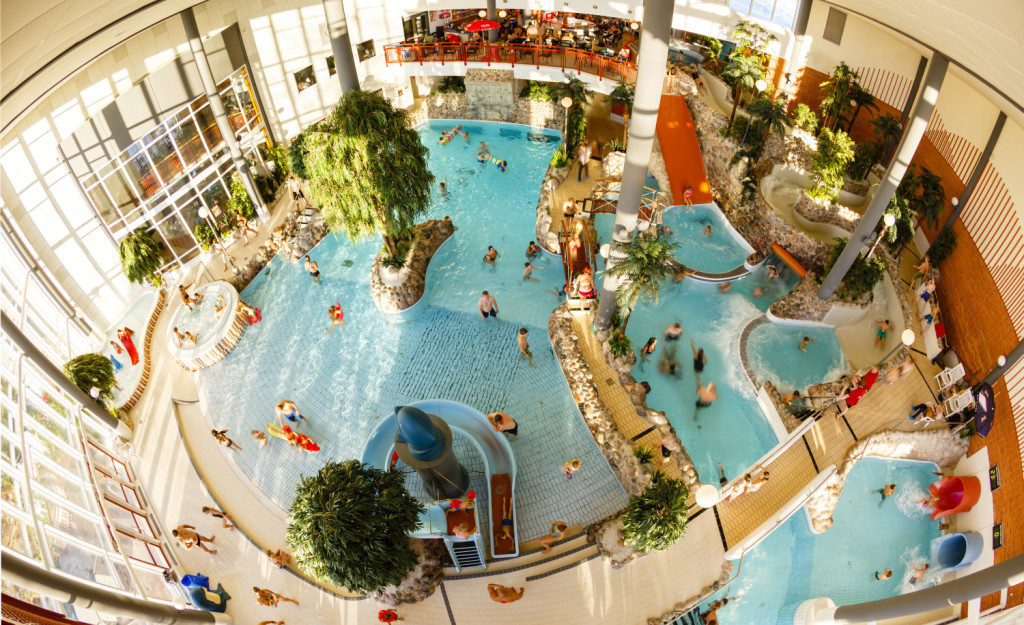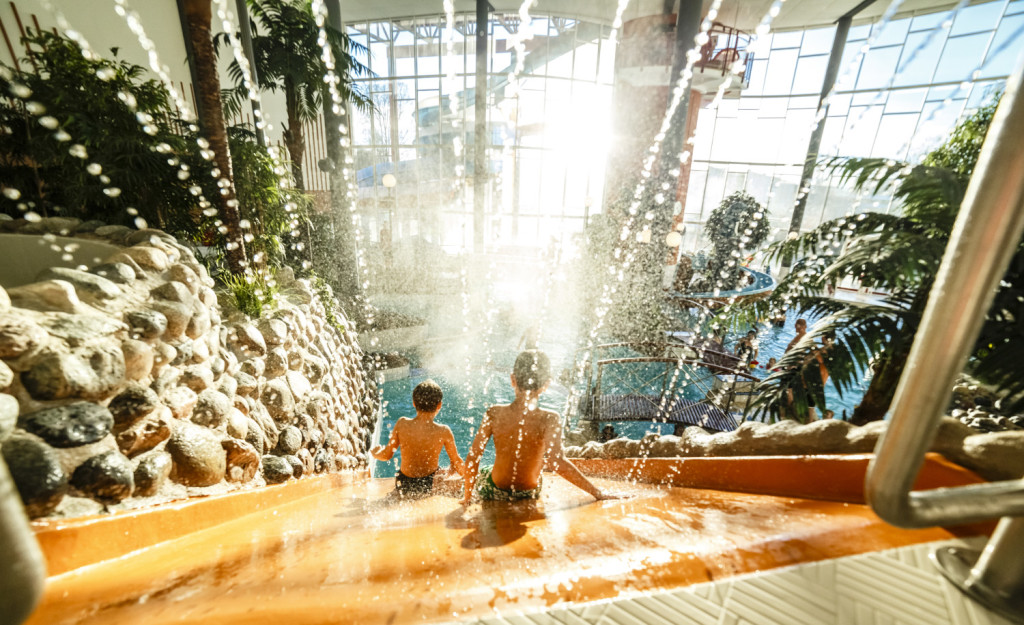Nordpoolen Adventure Pool
[cbxwpbookmarkbtn]
Welcome to Nordpoolen, one of Sweden's best water parks. At Nordpoolen you will encounter a wonderful world of boundless swimming adventures.
A world full of joy, laughter and a sense of belonging for the whole family. There's plenty to do for adults and children alike. Swim, play, compete or just relax in the water slides, exercise pool, relaxation area and children's pool. There is also a pool café, restaurant and gym.
Nordpoolen is the adventure pool where the water world is full of swimming adventures. It's also the swimming pool where you can swim for exercise and jump from the diving board and trampoline. At the top of the building is the Relaxation Area with a relaxation bar and terrace pool overlooking Boden.
On the beach in the Adventure you will find the children's slide and the children's pool with a mini slide on either side of the whirlpool. The cave where the current channel flows, the bubble zone and the climbing wall in the lagoon.
Welcome to swim, play and have fun!
NORDPOOLEN
Garnisonsgatan 1
961 75 Boden
nordpoolen@boden.se
+46 921 624 00




